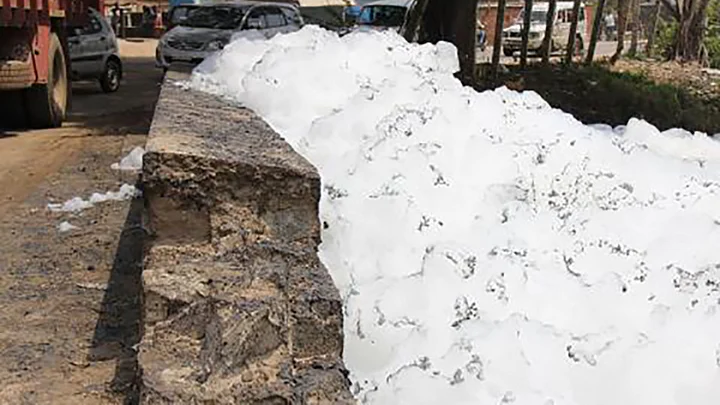Bengaluru’s environmental crisis could not have been captured any better than the photographs currently being circulated on social media. They show a white froth-like substance spilling out of two lakes in the city - the Bellandur lake and the Varthur lake. These lakes are 9 kilometres apart, but are inter-connected.
Shockingly, officials of the Karnataka State Pollution Control Board (KSPCB) and Bangalore Water Supply and Sewarage Board (BWSSB) say this is a regular phenomenon.
Just What is in Those Lakes?
What is clear is that the massive amounts of waste generated everyday is finding its way into the lakes. Both the KSPCB and the BWSSB say that the foam is a result of detergents used in households. Clearly it shouldn’t be disposed off in lakes.
The KSPCB Chairman Vaman Acharya claims that only 30% of the sewage meant for a treatment plant near the lakes goes into it. 70% gets discharged directly into the lake.
No One Willing to Take Responsibility
Vaman Acharya says it is the Bengaluru water supply board’s fault.
In Bengaluru, supply of drinking water and treating of sewage is the responsibility of BWSSB and it is has to be treated before it is let into the lakes.
-Vaman Acharya, Chairman of KSPCB
The KSPCB has also filed a criminal case against the engineers and the Chairman as they were considered to be the “polluters.”
Shockingly Acharya claims the untreated sewage does not pose any health risk.
Meanwhile, on contacting the Chief Engineer (Waste Water Management) Ramakrishna S M, he said, “The role of the KSPBC is not just to give us a notice, but to ensure and check who is polluting the lake.”
This is not the first time that the lake has foamed. The Hindu and Deccan Chronicle had reported one such incident in March 2011, followed by a Bangalore Mirror report in 2013.
Officials blame the spurt in the city’s growth for the failure to tackle the city’s sewage and pollution problems. After 110 villages surrounding Bengaluru were brought under the BBMP’s jurisdiction, sewage treatment has become a herculean task for the BWSSB. As a result, it is directly discharged into the lake.
It is not just the froth; Bengaluru’s lakes are severely contaminated with other pollutants. A Deccan Chronicle report says that when researchers of Bangalore University conducted tests, the amount of total dissolved solids like chlorides, fluoride, sulphates, phosphates, was much higher than the permissible limit for potable water.
(At The Quint, we question everything. Play an active role in shaping our journalism by becoming a member today.)
